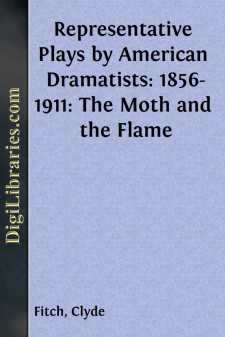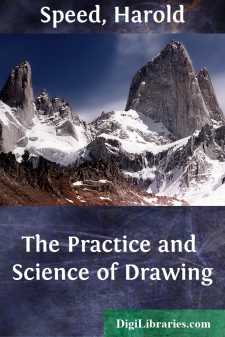Categories
- Antiques & Collectibles 13
- Architecture 36
- Art 48
- Bibles 22
- Biography & Autobiography 813
- Body, Mind & Spirit 142
- Business & Economics 28
- Children's Books 13
- Children's Fiction 10
- Computers 4
- Cooking 94
- Crafts & Hobbies 4
- Drama 346
- Education 46
- Family & Relationships 57
- Fiction 11828
- Games 19
- Gardening 17
- Health & Fitness 34
- History 1377
- House & Home 1
- Humor 147
- Juvenile Fiction 1873
- Juvenile Nonfiction 202
- Language Arts & Disciplines 88
- Law 16
- Literary Collections 686
- Literary Criticism 179
- Mathematics 13
- Medical 41
- Music 40
- Nature 179
- Non-Classifiable 1768
- Performing Arts 7
- Periodicals 1453
- Philosophy 64
- Photography 2
- Poetry 896
- Political Science 203
- Psychology 42
- Reference 154
- Religion 513
- Science 126
- Self-Help 84
- Social Science 81
- Sports & Recreation 34
- Study Aids 3
- Technology & Engineering 59
- Transportation 23
- Travel 463
- True Crime 29
Sort by:
by:
Clyde Fitch
CLYDE FITCH (1865-1909) Clyde Fitch brought a vivacity to the American stage that no other American playwright has thus far succeeded in emulating. The total impression of his work leads one to believe that he also brought to the American stage a style which was at the same time literary and distinctly his own. His personality was interesting and lovable, quickly responsive to a variety of human...
more...
by:
Harold Speed
IINTRODUCTION The best things in an artist's work are so much a matter of intuition, that there is much to be said for the point of view that would altogether discourage intellectual inquiry into artistic phenomena on the part of the artist. Intuitions are shy things and apt to disappear if looked into too closely. And there is undoubtedly a danger that too much knowledge and training may supplant...
more...
IN THE SHADOW OF THE GLEN A PLAY IN ONE ACT SCENE.—{The last cottage at the head of a long glen in County Wicklow. Cottage kitchen; turf fire on the right; a bed near it against the wall with a body lying on it covered with a sheet. A door is at the other end of the room, with a low table near it, and stools, or wooden chairs. There are a couple of glasses on the table, and a bottle of whisky, as if...
more...
by:
Oliver Goldsmith
Excuse me, sirs, I pray—I can't yet speak—I'm crying now—and have been all the week."'Tis not alone this mourning suit," good masters:"I've that within"—for which there are no plasters!Pray, would you know the reason why I'm crying?The Comic Muse, long sick, is now a-dying!And if she goes, my tears will never stop;For as a player, I can't squeeze...
more...
by:
Edith Oland
August Strindberg died at Stockholm On May 14, 1912, just ten days after the first of his plays given in English in the United States had completed a month's engagement. This play was "The Father," which, on April 9, 1912, was produced at the Berkeley Theatre in New York, the same little theatre that witnessed in 1894 the first performance in this country of Ibsen's "Ghosts."...
more...
by:
Olive Schreiner
I. THE LOST JOY. All day, where the sunlight played on the sea-shore, Life sat. All day the soft wind played with her hair, and the young, young face looked out across the water. She was waiting—she was waiting; but she could not tell for what. All day the waves ran up and up on the sand, and ran back again, and the pink shells rolled. Life sat waiting; all day, with the sunlight in her eyes, she sat...
more...
by:
Bernard Shaw
The forenoon of the first of April, 1911. General Mitchener is at his writing table in the War Office, opening letters. On his left is the fireplace, with a fire burning. On his right, against the opposite wall is a standing desk with an office stool. The door is in the wall behind him, half way between the table and the desk. The table is not quite in the middle of the room: it is nearer to the...
more...
by:
Edith Oland
BIOGRAPHICAL NOTE "I tell you, you must have chaos in you, if you would givebirth to a dancing star."—Nietzsche. In Stockholm, living almost as a recluse, August Strindberg is dreaming life away. The dancing stars, sprung from the chaos of his being, shine with an ever-increasing refulgence from the high-arched dome of dramatic literature, but he no longer adds to their number. The...
more...
PEOPLE IN THE PLAY ALICE GARDNER: Daughter of James K. Gardner, President of the L.I. & W. Railroad "UNCLE" JOSEPH HATCH: Alias "Gentleman Joe" "BRICK" MEAKIN: Alias "Reddy, the Kid" HARRY HAYES: Alias "Grand Stand" Harry CAPTAIN LUCAS: Chief of Police Policemen, Brakemen, Engineers Scene—The dining room in the country house of James K. Gardner on Long...
more...
by:
Sidney Lee
PREFACE This work is based on the article on Shakespeare which I contributed last year to the fifty-first volume of the ‘Dictionary of National Biography.’ But the changes and additions which the article has undergone during my revision of it for separate publication are so numerous as to give the book a title to be regarded as an independent venture. In its general aims, however, the present...
more...











